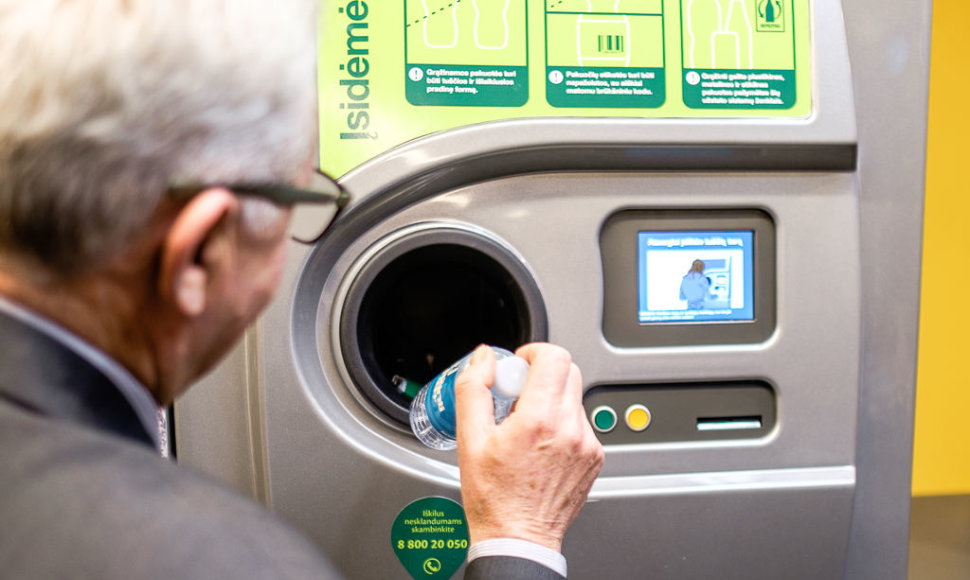According to the organisation’s data, 92% of all released packaging was returned for recycling. Compared to 2018, last year the number of gathered packages reached approximately 30 million units. Last year, 4.3 million more glass bottles, 10 million more PET packages and an entire 16 million more metal packages were gathered compared to the year before. 24.5 thousand tonnes of packaging were recycled in 2019, up 1,500 tonnes from 2018.
“The annually improving collection results show that over four years, deposit machines and manual collection points have become a regular convenience for residents. The absolute majority of people very clearly distinguish, what packaging must go to collection locations – the system consistently encourages sorting and a sorting society can reduce its environmental footprint and consciously create a sustainable future,” USAD head Gintaras Varnas states. According to him, Lithuania’s statistics have drawn close to those of Scandinavian countries, where deposit systems have been in operation for a long time.
Launched in February 2016, the deposit system gathered an entire 2.15 billion beverage packages by the end of 2019. Prior to the launch of the deposit system, a significant amount of packaging would land in our environment – particularly PET bottles, which comprise around 60% of all disposable beverage packaging.
G. Varnas highlights that the good results are reached only with joint efforts – the deposit system’s development is consistently supported by its main financers – Lithuanian beverage producers and importers. Also, the involvement of retailers is also very important – across Lithuanian cities, towns and villages, almost 3,000 locations for returning empty packaging and receiving the deposit are operational.
Currently, the deposit system includes 6.5 thousand different types of beverage packaging. In total, agreements with USAD on packaging management have been signed by more than 400 beverage productions, importing and bottling companies in Lithuania.
“We are in constant communication with residents and our partners, improving the deposit system with the goal of maintaining such high collection statistics and improving them,” G. Varnas stresses.
He emphasises that an effectively operating deposit system protects forests, parks and riversides from used non-alcoholic and light alcoholic beverage packaging because namely such beverages are most often consumed in nature.
“Residents actively participating in environment clean-up events and vacationers note that over the four years of the deposit system’s operation, nature has become cleaner. Used packaging is recycled – made into new materials, from which new cans, PET and glass bottles are made,” G. Varnas says and stressed that production from recycled materials helps conserve a significant amount of energy, reduce CO2 emissions, which are one of the reasons for climate change. As such, every bottle handed to a collection point helps reduce humanity’s negative footprint on a global scale.
The head of USAD is convinced that through small steps and daily habits, major change can be achieved. G. Varnas hopes that in 2020, even more packaging will be collected and recycled than last year and Lithuania can continue sharing its good practice with other countries.












